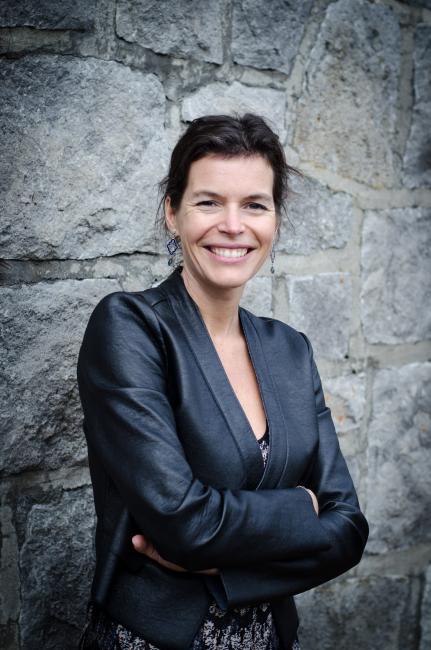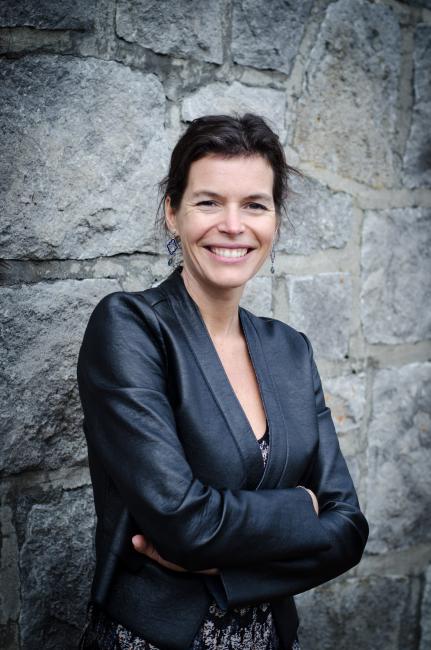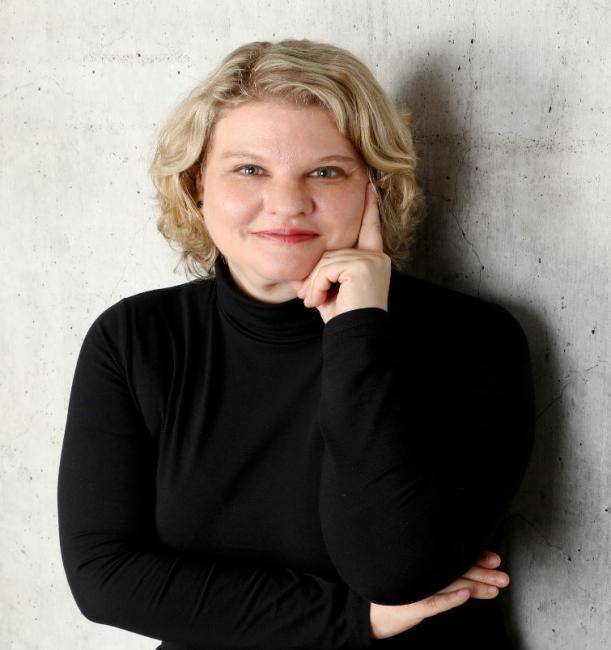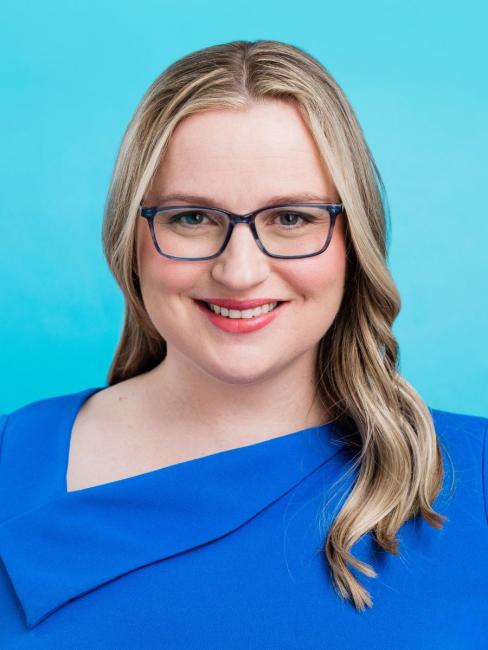Recherche
Légende
|
Accepte de nouveaux clients
|
N’accepte pas de nouveaux clients
|
|
Les services sont fournis en ligne
|
Se déplace dans les secteurs adjacents
|
|
Se déplace dans les secteurs éloignés
|
Clinicien(ne) réglementé(e) / agréé(e)
|
About Us
À notre sujet
Adult Supports in Niagara Region
Ways to Donate to Autism Ontario
Awards and Funding
Prix et financement
Webinar - Ask the Doctor: Healthy Sexuality, from Puberty to Adulthood for Autistic Youth and Adults with Dr. Isabelle Hénault
In this webinar, Dr. Isabelle Hénault will foster a discussion on sexual education and healthy sexuality for autistic individuals from puberty to adulthood.
In addition to elaborating on general strategies to improve the social and sexual relationship skills of autistic individuals, Dr. Hénault will be answering the audience’s questions on the following topics:
- Puberty and sexual development
- Friendships and relationships
- Emotions related to sexuality
- Appropriate versus inappropriate sexual behaviour
- Intimacy
- Interpreting social situations, including verbal communication and body language
This webinar is appropriate for autistic youth, adults, and their families as well as professionals working with this population.
Speaker: Dr. Isabelle Hénault
Dr. Isabelle Hénault is a sexologist and psychologist from the University of Québec at Montréal, Canada. Her practice and studies have focused on providing diagnosis, education, and support to children, adolescents, adults, and couples living with Autism and Asperger’s Syndrome. Dr. Hénault has developed a relationship and sex education program, and works with individuals and groups to increase their understanding of sexuality, and conducts relationship counselling. She is presently collaborating on numerous international research initiatives involving socio-sexual education and interpersonal relationships. She worked for over 2 years and a half at Tony Attwood’s clinic in Australia.
Dr. Hénault is the author of Asperger’s Syndrome and Sexuality: From Adolescence through Adulthood, published by Jessica Kingsley Publisher, London (2005) and co-author of The Autism Spectrum, Sexuality and the Law (Attwood, Hénault & Dubin) published by Jessica Kingsley Publisher, London (2014).
She also published the book: The female profile of Autism (Chenelière Education, 2020; JKP 2023) and collaborated to the book: Working with Autistic Transgender and Non-Binary people (Kourti & Coll, 2021).
Disclaimer: Opinions reflected in this webinar are those of the speaker(s) and presenter(s), and do not necessarily reflect Autism Ontario’s views. Please note Autism Ontario does not endorse any specific therapy, product, treatment, strategy, opinions, service, or individual. We do, however, endorse your right to information. Autism Ontario strongly believes that it is important to do your own research and make your own informed decisions.
Webinaire - Demandez au docteur : Une sexualité saine de la puberté à l’âge adulte pour les adolescent.e.s et les adultes autistes, avec Isabelle Hénault, docteure en psychologie (en anglais)
Dans ce webinaire, Dre Isabelle Hénault, psychologue, animera une discussion sur l’éducation sexuelle et une sexualité saine pour les personnes autistes, de la puberté à l’âge adulte.
En plus d’exposer des stratégies générales visant à améliorer les habiletés des personnes autistes sur le plan des relations sociales et sexuelles, Isabelle répondra aux questions de l’auditoire sur les sujets suivants :
- La puberté et le développement sexuel
- Amitiés et relations
- Les émotions liées à la sexualité
- Comportement sexuel approprié et inapproprié
- L’intimité
- Interprétation des situations sociales, y compris la communication verbale et le langage corporel
Animatrice : Dre Isabelle Hénault
Dre Isabelle Hénault, Ph.D., est une sexologue et psychologue de l’Université du Québec à Montréal, au Canada, dont la pratique et les recherches portent plus particulièrement sur le diagnostic, l’éducation et le soutien des enfants, des adolescent.e.s, des adultes et des couples qui vivent avec l’autisme et le syndrome d’Asperger. Elle a mis sur pied un programme d’éducation sexuelle et d’aide relationnelle, elle intervient auprès d’individus et de groupes pour améliorer leur compréhension de la sexualité et elle fait du counseling relationnel. Isabelle collabore actuellement à de nombreux projets de recherche internationaux concernant l’éducation socio-sexuelle et les relations interpersonnelles. Elle a travaillé pendant plus de deux années et demie à la clinique de Tony Attwood en Australie.
Isabelle Hénault est l’auteure du livre « Le syndrome d’Asperger et la sexualité : de la puberté à l’âge adulte » publié chez Jessica Kingsley Publisher, London (2005) et co-auteure du livre « The Autism Spectrum, Sexuality and the Law » (Attwood, Hénault & Dubin), publié chez Jessica Kingsley Publisher, London (2014).
Elle a également rédigé Le profil Asperger au féminin : Caractéristiques, récit et guide clinique (2020) chez Chenelière Education et a collaboré à Working with Autistic Transgender and Non-Binary people (Kourti & coll., 2021).
Déni de responsabilité : Les opinions exprimées dans ce webinaire sont celles des conférencier.ère.s et des présentateur.trice.s et ne reflètent pas nécessairement les points de vue d’Autisme Ontario. Prenez note qu’Autisme Ontario ne donne son appui à aucun produit, thérapie, traitement, stratégie, opinion, service ou individu en particulier. Nous appuyons cependant votre droit à l’information. À nos yeux, il est très important que vous fassiez vos propres recherches afin de prendre vous-même des décisions éclairées.
Careers
Carrières
Webinar - Supporting Emotional Regulation Through Neuro-affirmative Care with Kathleen Patterson
Please note this webinar aired on April 18th, 2024 and is now available On-Demand.
This webinar explores how many young autistic and neurodiverse people often feel overwhelmed by their environment and surroundings and how, as a result, they might become dysregulated.
Together, we will aim to understand what might be happening in that moment for them and how, as a parent, a caregiver or a professional, we can adopt a non-judgmental and neuro-affirming approach that fosters autonomy, builds the capacity to advocate for oneself, and supports overall well-being.
At the heart of our conversation lies the concept of neuro-affirmative care—a compassionate approach that embraces individual differences and nurtures autonomy.
Learning Objectives:
- Understand sensory overload and recognize signs of feeling overwhelmed.
- Explore dysregulation and learn strategies for self-regulation and co-regulation
- Gain insights into supporting individuals through neuro-affirmative care practices.
Through insightful discussions on self-regulation and the power of co-regulation, we aim to equip parents, caregivers, and professionals with practical strategies to support neurodiverse youth effectively.
Whether you're a parent seeking understanding, a caregiver aiming to provide better support, or a professional dedicated to fostering inclusive environments, this webinar offers insights to enhance the well-being of neurodiverse youth. We recognize that there's no one-size-fits-all solution; instead, we'll explore general strategies to support neurodiverse youth effectively.
Watch On Demand Here: https://bit.ly/3TfrMt6
For more information on this topic, please see the additional resources attached below.
Speaker: Kathleen Patterson
Working in the mental health and helping profession for over 25 years, Kathleen Patterson has served a diverse clientele through the years including children, adolescents, adults, and families. She holds a master’s degree in psychology from Laval University and a graduate diploma in psychotherapy and spiritual care from Wilfrid Laurier University. As a professional, Kathleen has held various positions as a psychotherapist, as a coordinator and program manager for specialized services serving a 0-18 population, and as a mental health leader for a school board.
She is currently the clinical team leader for the adult mental health services at the Centre Francophone du grand Toronto, and is also the founder of Neuro Unique, a consultation and therapy service that aims to offer neuro affirmative care for neurodiverse individuals and their families. Kathleen Patterson is a parent to two children on the autism spectrum.
Moderated By: Matt Ley
Matt Ley is the current President and co-founder of The Streaming Network. Starting his career in virtual events in 2007, Matt is an industry veteran who is passionate about helping customers stand out in their industry with compelling virtual events that people want to attend. The driving ambition for Matt is that virtual events are not a utility for information distribution but an opportunity for firms to create a competitive advantage. Matt is an accomplished speaker, moderator, and a sought-after thought leader.
Disclaimer: Opinions reflected in this webinar are those of the speaker(s) and presenter(s), and do not necessarily reflect Autism Ontario’s views. Please note Autism Ontario does not endorse any specific therapy, product, treatment, strategy, opinions, service, or individual. We do, however, endorse your right to information. Autism Ontario strongly believes that it is important to do your own research and make your own informed decisions.
This presentation is also being offered in French; see here for more information.
Research Participation Postings
Research Participation Opportunities
Autism Ontario Welcomes Funding for Canada Disability Benefit in 2024 Federal Budget
Autisme Ontario accueille favorablement le financement de la Prestation canadienne pour les personnes handicapées dans le budget fédéral de 2024
Autism Ontario Helps Celebrate the Legacy of David Onley
Our Team
Notre équipe
Memberships & Subscriptions
Adhésions et abonnements
Fill out this
L'autisme et ce parasite nommé anxiété
Le plus grand défi de beaucoup de personnes autistes est l’anxiété. Pourquoi ? Est-il possible de minimiser les dégâts ? Cette conférence aide à comprendre les causes et les déclencheurs, déceler les signes et se doter d’outils et d’astuces, pour une petite victoire à la fois. Elle est présentée avec positivisme et bonne humeur, et elle aide à mieux vivre avec l’autisme et l’anxiété qu’il peut souvent générer.
Mieux définir et comprendre ce qu’est un PEI et un CIPR
Suite à cette présentation, les participant.es comprendront c’est qu’un PEI (plan d’enseignement individualisé) et comment celui-ci est un outil indispensable dans le cheminement scolaire des élèves qui ont des besoins particuliers. Un survol du PEI apportera une compréhension des diverses composantes, ainsi que précisera les responsabilités des parties impliquées à son élaboration. De même, un court aperçu de ce qu’est un CIPR (Comité d’identification, placement et/ou révision) sera livré. Il est à noter que cette présentation n’est pas voulue d’être une étude détaillée de ces thématiques, mais bien de connaitre quelques termes et précisions nécessaires aux parents et divers professionnels qui font partie de l’équipe-école de l’élève.
Webinar - Her Spectrum: Navigating the Unique Experiences and Needs of Autistic Girls and Women with Marie Hooper
Join us to explore autism as it relates to the distinct needs and experiences of girls and women. Please note this webinar aired on March 7th, 2024 and is now available On-Demand.
This presentation illuminates the unique challenges faced by autistic females, examining how societal expectations, gender stereotypes, and diagnostic biases impact their journey.
This webinar will provide valuable insights into the nuanced ways autism presents in females, discussing the potential differences in social communication, sensory sensitivities, and coping mechanisms.
We will explore the importance of early detection, dispelling myths and misconceptions surrounding the gendered presentation of autism.
Through research findings, real-life stories, and practical strategies, participants will gain a deeper understanding of how to support and empower autistic girls. By fostering awareness and embracing a gender-inclusive perspective, we can create a more supportive environment for all autistic individuals.
Learning Objectives:
- Understand why autistic girls and women are under-diagnosed
- Learn to recognize common masking behaviours
- Explore strategies for dealing with common issues like anxiety, low self-esteem, poor self-regulation, sensory sensitivities, obsessive interests, and maintaining friendships
- Enhance communication and find opportunities for connection
This webinar is designed with autistic individuals who identify as women and parents and caregivers of autistic girls in mind. Professionals are welcome to join.
This presentation contains material that might be difficult to discuss, including sexuality and abuse. These themes will be discussed in a sensitive and educational way, emphasizing prevention.
Register here: https://bit.ly/42u6nk3
For more information on this topic, please see the additional resources attached below.
Speaker: Marie Hooper, Ph.D. Candidate
Marie Hooper is the co-owner and founder of Flourish Health Services, a paediatric hub in the heart of the Beaches (Toronto) that provides developmental health services to children, youth, and families.
Marie is currently a Ph.D. candidate in Clinical Developmental Psychology at York University and a seasoned professional with extensive experience in assessing and working with autistic children, youth, and adults. Her strengths-based, evidence-based, neurodiversity-affirming approach is complemented by a rich background in addressing a range of challenges, including learning difficulties, developmental delays, and mental health issues.
Marie's diverse skill set includes Cognitive Behavioural Therapy, Dialectical Behavioural Therapy, Acceptance and Commitment Therapy, Motivational Interviewing, Play Therapy, Parent-Child Interaction Therapy, and Emotion-Focused Therapy. With a residency at YRDSB, TDSB, and Etobicoke Psychological Services, along with affiliations at Launch Behavioural Health, the Hospital for Sick Children, and Holland Bloorview Kids Rehabilitation Hospital, Marie is deeply involved in paediatric mental health.
Her brainchild, Flourish, fulfills her long-standing dream of a paediatric hub, driven by personal insights as a parent to a child with complex needs. Currently completing her doctoral research on family stress, Marie offers support to clients and families, working under licensed clinical psychologists during the final stages of her Ph.D. journey.
Moderated By: Matt Ley
Matt Ley is the current President and co-founder of The Streaming Network. Starting his career in virtual events in 2007, Matt is an industry veteran who is passionate about helping customers stand out in their industry with compelling virtual events that people want to attend. The driving ambition for Matt is that virtual events are not a utility for information distribution but an opportunity for firms to create a competitive advantage. Matt is an accomplished speaker, moderator, and a sought-after thought leader.
Disclaimer: Opinions reflected in this webinar are those of the speakers, and do not necessarily reflect Autism Ontario’s views. Please note Autism Ontario does not endorse any specific therapy, product, treatment, strategy, opinions, service, or individual. We do, however, endorse your right to information. Autism Ontario strongly believes that it is important to do your own research and make your own informed decisions.
Webinaire – Le spectre au féminin : Unicité des expériences et des besoins des filles et des femmes autistes, avec Marie Hooper (en anglais)
Nous vous invitons à explorer avec nous les troubles du spectre de l’autisme, sous l’angle des besoins uniques et des expériences particulières des filles.
Cet exposé met en lumière les défis particuliers auxquels sont confrontées les filles autistes. Nous verrons comment leur parcours est influencé par les attentes sociétales, par les stéréotypes de genre et par les biais diagnostiques.
Le webinaire vous fournira de précieuses informations sur le caractère nuancé des manifestations de l'autisme chez les femmes, et il abordera les différences potentielles sur le plan de la communication sociale, des sensibilités sensorielles et des mécanismes d'adaptation.
Nous examinerons l'importance d’une détection précoce, tout en dissipant les mythes et les idées fausses qui entourent la présentation genrée de l'autisme.
À la lumière de résultats de recherches, de récits vécus et de stratégies pratiques, les participant.e.s auront une meilleure compréhension des mesures à prendre pour mieux soutenir les filles autistes et développer leur pouvoir d’agir.
En favorisant une meilleure sensibilisation et en adoptant une perspective d'inclusion du genre, nous pouvons créer un environnement plus accueillant pour toutes les personnes autistes.
Objectifs d'apprentissage :
- Comprendre pourquoi les filles et les femmes autistes sont sous-diagnostiquées.
- Apprendre à reconnaître les comportements de masquage (camouflage) courants.
- Explorer des stratégies pour contrer divers problèmes courants (anxiété, faible estime de soi, faibles capacités d’autorégulation, sensibilités sensorielles, intérêts obsessionnels, maintenir les amitiés, etc.).
- Améliorer la communication et trouver des occasions de tisser des liens.
Ce webinaire a été conçu pour les personnes autistes qui s’identifient comme femmes et pour les parents et aidant.e.s de filles autistes. Les professionnel.le.s sont les bienvenu.e.s.
Cette présentation traite de sujets qui peuvent être difficiles à aborder, notamment la sexualité et les abus. Ces thèmes seront discutés d’une manière sensible et éducative, qui met l'accent sur la prévention.
Pour plus d'information sur ce sujet, consultez les ressources supplémentaires ci-dessous.
Animatrice : Marie Hooper, candidate au doctorat
Marie Hooper est copropriétaire et fondatrice de Flourish Health Services, un carrefour pédiatrique situé au cœur du secteur Beaches (Toronto) qui offre des services de santé du développement aux enfants, aux adolescent.e.s et aux familles. Actuellement candidate au doctorat en psychologie clinique du développement à l'Université York, Marie est une professionnelle chevronnée qui possède une vaste expérience de l'évaluation des enfants, des adolescent.e.s et des adultes autistes et du travail auprès de cette clientèle. Elle privilégie une approche fondée sur les forces, les données probantes et l'affirmation de la neurodiversité, en faisant appel à une riche expérience dans le traitement d'un large éventail de problèmes, dont les difficultés d'apprentissage, les retards de développement et les enjeux de santé mentale.
Au nombre des compétences de Marie, citons la thérapie cognitivo-comportementale, la thérapie comportementale dialectique, la thérapie d'acceptation et d'engagement, l'entretien motivationnel, la thérapie par le jeu, la thérapie d'interaction parent-enfant et la thérapie axée sur les émotions. Ayant à son crédit un internat au York Region District School Board, au Toronto District School Board et aux Etobicoke Psychological Services et des affiliations à Launch Behavioural Health, au Hospital for Sick Children et au Holland Bloorview Kids Rehabilitation Hospital, Marie a un profond engagement envers la santé mentale pédiatrique.
Motivée par son expérience personnelle de parent d'un enfant ayant des besoins complexes, elle a réalisé un rêve qu’elle caressait depuis longtemps en fondant le carrefour pédiatrique Flourish Health Services. Marie termine actuellement sa recherche doctorale sur le stress familial, et elle achève les dernières étapes de son parcours doctoral en offrant un soutien aux client.e.s et aux familles, sous la direction de psychologues cliniciens agréés.
Matt Ley, modérateur :
Matt Ley est le cofondateur et l’actuel président du Streaming Network. Ayant entamé en 2007 sa carrière dans le domaine de l’événementiel virtuel, Matt est un vétéran de l’industrie qui s’est donné pour mission d’aider ses client.e.s à se démarquer dans leur secteur au moyen de captivants événements virtuels auxquels les gens voudront assister. Sa grande ambition : faire en sorte que les événements virtuels ne soient pas un simple outil de diffusion d’information, mais un avantage concurrentiel pour les entreprises. Orateur et modérateur accompli, Matt est aussi un leader d’opinion recherché.
Déni de responsabilité : Les opinions exprimées dans ce webinaire sont celles des conférencier.ère.s et des présentateur.trice.s et ne reflètent pas nécessairement les points de vue d’Autisme Ontario. Prenez note qu’Autisme Ontario ne donne son appui à aucun produit, thérapie, traitement, stratégie, opinion, service ou individu en particulier. Nous appuyons cependant votre droit à l’information. À nos yeux, il est très important que vous fassiez vos propres recherches afin de prendre vous-même des décisions éclairées.
Soutenir la régulation émotionnelle avec l’approche neuro affirmative
Cet atelier explore comment l’environnement immédiat, avec ces multiples sources de stimulations sensorielles et autres, peut susciter pour plusieurs jeunes personnes autistes ou neurodiverses la sensation d’être dérégulé. Ensemble nous tenterons de comprendre ce qui se produit dans de tels moments et comment en tant que parent, proche aidant.e ou professionnel.le, nous pouvons adopter une posture neuroaffirmative et absente de jugement afin de favoriser l’autonomie, augmenter les habiletés individuelles nécessaires pour identifier et faire valoir les besoins et soutenir un état de bien-être général. Thèmes abordés :
1. Surcharge sensorielle et dérégulation
2. Dérégulation, auto-régulation et corégulation
3. Comment appuyer en privilégiant une approche neuro affirmative
4. Chaque individu est unique – Trouver ce qui fonctionne pour chacun
5. Questions, discussion, à retenir





